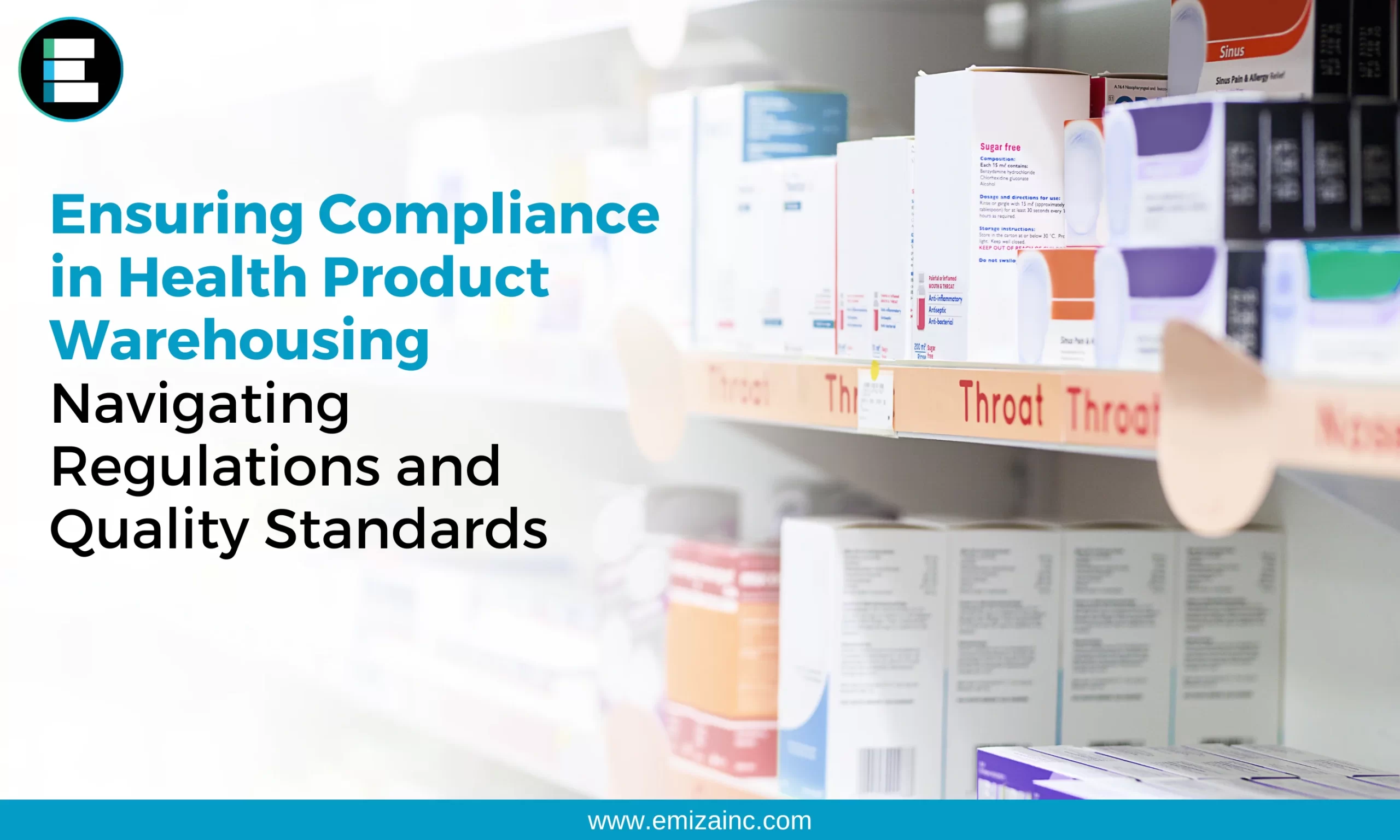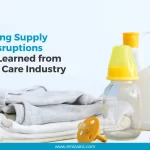Warehouses have always faced formidable challenges in their daily operations, balancing the efficient storage and movement of goods with the constant need for security and compliance. These challenges are magnified in the pharmaceutical and healthcare industry, where the government closely regulates and monitors the production, storage, and distribution of essential health products. In this article, we will explore the unique challenges faced by warehouses in the health and wellness sector, focusing on the pharmaceutical industry, and how they can navigate regulations and quality standards to ensure compliance.
Challenges Faced by 3PL Companies
3PL companies are responsible for managing inventory, maintaining required temperatures for temperature-sensitive products, ensuring security for goods and employees, and adhering to mandated procedures and regulations for handling goods. In the health and wellness sector, these challenges are even more critical due to the nature of the products being handled.
Let’s delve deeper into the specific challenges that 3PL companies face in the pharmaceutical industry:
Temperature Control: Pharmaceuticals, including drugs, precursor chemicals, and active pharmaceutical ingredients, require precise temperature control. Storage temperatures often range between 15-25°C (59-77°F), with some products requiring freezing. Failure to maintain proper temperatures can compromise the efficacy and chemical composition of these products.
Humidity Management: Moisture can have a detrimental impact on medicines’ effectiveness. For instance, exposure to moisture can lead to inaccurate readings in blood glucose strips.
Light Exposure: Extended exposure to sunlight, specifically ultraviolet rays, can alter the chemical composition of medicines. This can lead to issues like photodecomposition and post-drug administration side-effects such as photoallergy and phototoxicity.
The Current Good Manufacturing Process (CGMP)
To ensure the safe storage and handling of pharmaceutical products, the Food and Drug Administration (FDA) mandates the Current Good Manufacturing Process (CGMP). CGMP provides guidelines and standards for drug storage and warehouse management processes. It covers various aspects, including:
Storage: Detailed guidelines outlining the specific conditions under which each drug should be stored.
Tracking: Maintaining a meticulous record of product categories and their prescribed storage and handling protocols within the warehouse.
Contamination Prevention: Regular cleaning and inspection to prevent contamination while in storage.
Unique Identification: All drugs must be identified and stored with unique codes that facilitate easy identification and tracing. This includes data such as batch size and receipt information.
Handling and Distribution: Detailed guidelines for the handling and distribution of each product, including procedures for recalls.
Following CGMP regulations allows pharmaceutical manufacturers to:
Ensure the safe storage of medicines and raw materials.
Prevent decomposition and degradation of finished products.
Avoid mistakenly shipping expired or damaged goods.
Protect against product or material contamination.
Warehouse Management Best Practices
In addition to CGMP compliance, there are several best practices that warehouses in the pharmaceutical industry should follow to ensure compliance and efficiency:
Storage: Proper storage practices are essential to prevent defective products. Warehouses should store similar product types together, ensure the visibility of unique codes, and use correct labeling with accurate information (e.g., expiration dates, damaged goods). Additionally, materials should be tracked from storage to shipment.
Testing: Stringent requirements for sampling rooms, including clean instruments and personal protective equipment (PPE) kits, should be maintained to prevent contamination.
Shipments: Materials must be reviewed for use, safely stored, and registered in the firm’s inventory database. Correct labels with essential information should be displayed, and materials should be quarantined until quality-control checks are completed.
Tags and Labels: Proper labeling is crucial, including standard names, unique identification numbers (UINs), and other relevant information. Labels should differentiate between items assigned by suppliers and those assigned by the warehouse.
Using Technology: Modern technology, such as automated software, cloud-based systems, mobile devices, and up-to-date hardware, is essential to ensure compliance and efficiency. Outdated technology can lead to legal and compliance issues.
Security: Pharmaceutical products are high-value targets for theft due to their cost and demand. Warehouse security protocols should be stringent, including measures to protect data systems from malicious access and cybercrimes.
Emiza’s Warehouse Management
Affordable Infrastructure: Emiza offers cost-effective storage solutions and equipment, helping health and wellness businesses optimize expenses.
Expiry Date Scanning: During our inbound product inspections, we proactively scan for items with expiry dates of less than 90 days. If identified, our system restricts their acceptance and triggers a detailed quality control assessment, ensuring stringent quality and safety standards.
Skilled Workforce: Say goodbye to talent shortages; Emiza’s team of experts ensures efficient pharmaceutical warehousing.
Quality Assurance: Emiza’s commitment to quality means your products are handled with care and precision.
Accessibility: Strategically located warehouses reduce transportation costs and improve customer service.
Data Security: Emiza prioritizes data privacy and security, safeguarding sensitive information.
Conclusion
Warehouses in the pharmaceutical industry face unique challenges due to the sensitive nature of their products and the stringent regulations imposed by the FDA. Ensuring compliance with CGMP regulations and implementing best practices for storage, labeling, and security is essential to maintain product quality, protect public health, and prevent legal and regulatory issues. As health and wellness business owners strive to navigate the complex landscape of regulations and quality standards, Emiza stands as a beacon of reliability and excellence in warehouse management. With Emiza by your side, you can focus on what matters most – delivering high-quality products and services to improve the well-being of your customers while Emiza handles the intricacies of warehouse management with precision and care. Visit https://emizainc.com/ to know more.


